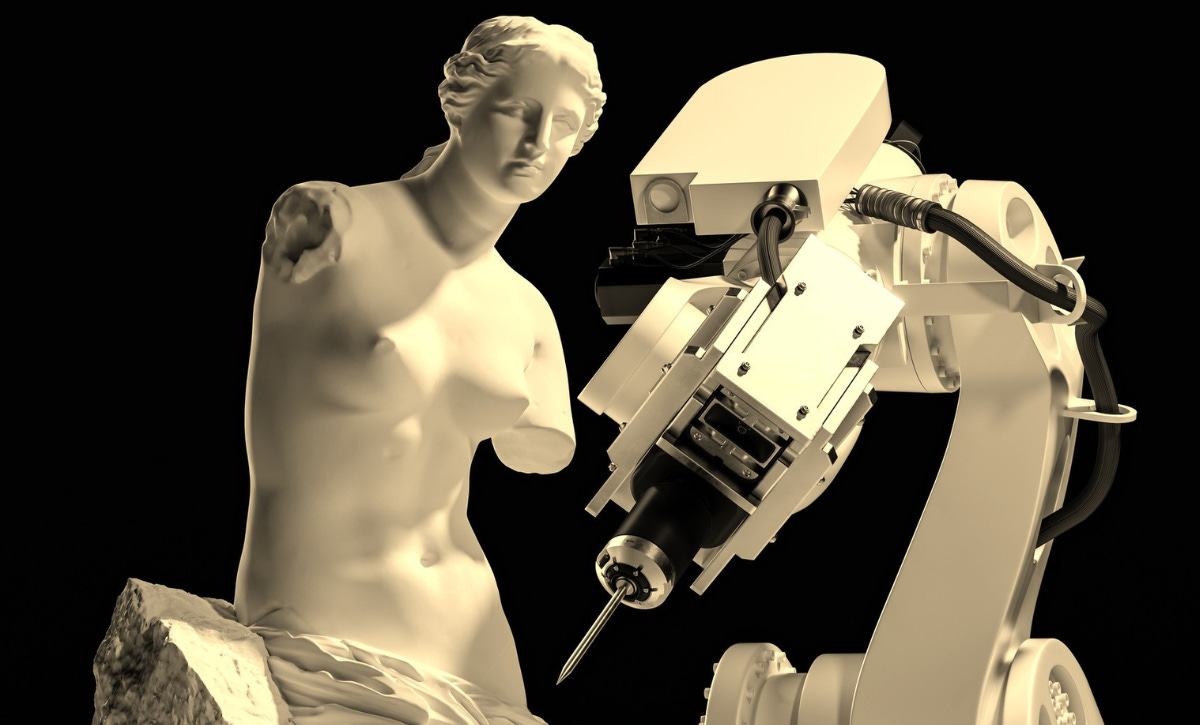Tim Seibles on Free Black Thought Podcast
Prohuman Foundation advisor and former Virginia Poet Laureate Tim Seibles joined host Connie Morgan on the Free Black Thought Podcast to discuss his art, shaped by his mother’s literary influence and 1960s Black Philadelphia. He champions accessible poetry that blends personal and political themes through authentic storytelling.
SEIBLES: What poetry wants—and I would include this with all the arts—it just wants to say, "Hey—sit with your own soul for a minute. Feel what you feel—don’t run away from it, because it’s what makes you a human being!"
If you’ve felt deeply something that another human being has created, it’s hard to be callous about human suffering. It is hard . . . . Once you start to really engage and have a sense of what’s at stake, here, you know . . . on this tiny planet in a vast galaxy, among thousands upon thousands of galaxies. You start to say, hmm . . . something remarkable is happening here. Maybe I should pay attention. Being human . . . being this kind of animal . . . something special . . . . Maybe I should listen more carefully to poets, painters, musicians . . . . I think that’s what most artists . . . what we dream—that perhaps we can invite people to a different level of engagement with life. To the extent that one becomes engaged emotionally and intellectually, one is, I think, far less inclined to being a monster.
We, Robots: AI is remaking us in its own image. Students are on the front lines.
Historian Kate Epstein, writing in Persuasion, argues that AI’s dominance in education risks diminishing students’ humanistic intelligence by prioritizing calculation over reasoning, empathy, and critical judgment. She warns that overusing AI in classrooms undermines liberal arts education, stunting emotional and cognitive development, and ultimately threatens social stability.
[The liberal arts] teach students their own freedom, lodged in the capacity for critical judgment and empathy, as well as the freedom of others. In so doing, they engage the richest and most complex parts of students’ humanity—their minds and souls—not the narrower and simpler part of their humanity as workers (or consumers).
Deresiewicz and Smith: Competencies in Civil Discourse
For the CATO Institute's Competencies in Civil Discourse series, Erec Smith interviewed his fellow Prohuman Foundation advisor William Deresiewicz to discuss promoting intellectual courage and reviving thoughtful dialogue in academia. They touch on Deresiewicz’s efforts, working with the Matthew Strother Center for the Examined Life, to advance those goals.
DERESIEWICZ: What [The Disadvantages of an Elite Education and Excellent Sheep] are about is what going through the system of elite education—in particular becoming the kind of person that gets into a fancy college—turns you into. Like, what person does the system produce, which is a system . . . of relentless hoop jumping, adult pleasing, risk aversion, and individualistic, meritocratic competition. The kind of people that that produces are conformists. They are teacher-pleasers. And, as I said, they’re intensely competitive individuals, with often a really shallow engagement with the intellectual material that’s put in front of them, if only because the system requires so much “achievement” in the form of AP courses and EC activities, and clubs, and sports, and music, and student government, and all that crap, that you really don’t have time to engage intellectually.
Yad Vashem’s Dani Dayan: University heads now taking ‘different tone’ on antisemitism
For Jerusalem Post, Amichai Stein reports that Yad Vashem chairman Dani Dayan sees a shift in U.S. university leaders’ attitudes toward addressing antisemitism. (Yad Vashem—the World Holocaust Remembrance Center—is Israel’s official memorial to victims of the Holocaust). Dayan detected greater understanding at recent meetings with NYU and Columbia presidents. He highlights concerns about academic frameworks and protests that delegitimize Israel, emphasizing the need to confront these moral and intellectual issues embedded in university curricula and culture.
[Dayan] emphasized that the problem goes beyond students protesting against Israel, and the safety of Jewish and Israeli students. “It’s embedded in the courses, the syllabi, the faculty. But I sensed a willingness, or at least an expression of willingness, to make changes.”
Meet Katherine Brodsky:
The Prohuman Book Club will meet on Thursday, May. 29 with author Katherine Brodsky to discuss her book “No Apologies: How to Find and Free Your Voice in the Age of Outrage.” The book profiles courageous thinkers and dissenters in the arts, education, journalism, and science who offer inspiration and practical lessons for the ‘silenced majority.’ Join us—bring your questions and engage Katherine directly.
Opinions expressed in selected articles do not necessarily reflect those of the Prohuman Foundation. We value diverse perspectives that enrich our understanding of topics close to our mission: to promote the foundational truth that we are all unique individuals, united by our shared humanity.








